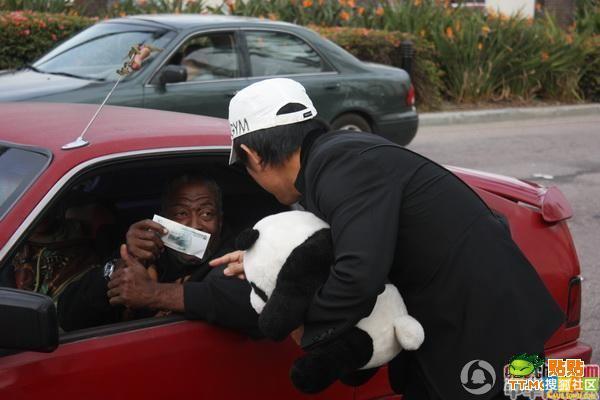Society
- Details
- By David Cao
- Hits: 915
A formidable 15-foot high wall towered over the group of junior high school boys. For us, between 10 and 12 years old, this obstacle posed an impossible challenge: to pass the entire group over the barrier with nothing more than teamwork.
Such challenges were a typical part of my childhood. Growing up in the US in the 1980s, I was an oddity, an only child to a single mother and an only grandchild to her parents. I was the only one of my kind.
Every single one of my friends had brothers and sisters. My mother ushered me into boy scouts, basketball, baseball, American football, soccer, leadership camps, volunteer groups, and a church group.
My first job was working on a crew of lifeguards at a beach. These various group activities were a way for me to have surrogate brothers and sisters.
I moved to China more than a year ago, and the land of the only child opened my eyes to the importance of teamwork.
Looking back, these groups offered more than fake siblings, they offered an education in social interaction; being a teammate, being a follower, being a leader, being a problem solver, taking responsibility, effective communication, future planning, and being prepared.
- Details
- By Global Times
- Hits: 940
I just arrived in Beijing a couple of days ago and am still catching up on the time change, so when I woke up ridiculously early one morning last week, I decided to take advantage of it and watch American Football on my computer.
I spent a lot of time trying to find the game, cursed when the feed would stall and I'd have to find another that worked but finally settled in and was able to watch the contest of my choice.
And as I watched my team, the San Diego Chargers, beat the Philadelphia Eagles, it occurred to me how bizarre it was that I was sitting here in Beijing, watching on my computer live football being played in San Diego.
I think back to my first time in Beijing, where the only contact I had with my home and family was one short phone call and a series of letters that would take three weeks to receive.
My letters home were a series of scrawls pen-written on tissue-thin paper to save on postage. I wrote a lot of letters because I missed my friends and family, and writing letters felt like a way of summoning them closer.
- Details
- By David Cao
- Hits: 975
After attending a fashion show, this Chinese started to visit western cities of USA. During the days in Los angles and Las Vegas, he send 10,000 RMB (about 1 464.11 U.S. dollars) to Americans there, "I wanna show the Americans that the PRC is catching up nowadays" he said, "Maybe someone just need RMB".

Read more: "Rich Chinese" gives RMB generously to americans: gallery
- Details
- By David Cao
- Hits: 882

The death toll from Sunday's colliery blast in central China's Hunan Province has risen to 11 and three people are still missing, the local government confirmed Monday.
Rescue work was continuing Monday at Guojiawan Coal Mine in Chenxi County, in the city of Huaihua, a county government spokesman said.
Altogether 33 people were working in the pit when the blast occurred at around 10 a.m. Sunday, and 15 escaped, he said.
Rescuers saved five people, but one of them died in hospital late Sunday.
Ten bodies had been recovered as of 8 a.m. Monday.
Guojiawan, a village-run colliery, was founded in 1995 with a designed annual output of 30,000 tonnes.
Another fatal mine disaster, in northeast China's Heilongjiang Province, had claimed 104 lives as of Monday morning and another four remained trapped in the shaft.
The blast happened at around 2:30 a.m. Saturday at the Xinxing Coal Mine under the state-owned Heilongjiang Longmei Mining Holding Group's subsidiary in Hegang City. A total of 528 miners were working underground when the blast happened.
- Details
- By David Cao
- Hits: 888
An earthquake measuring 4.8 on the Richter Scale jolted Sichuan Province in southwest China Monday afternoon, according to the provincial seismological network.
The quake struck at 3:25 p.m., with the epicenter in Wenchuan County of Aba Tibet and Qiang Autonomous Prefecture. Wenchuan was also the epicenter of the 8.0-magnitude quake of May 12 last year that left about 87,000 people dead or missing.
The provincial seismological network said the tremor, which was also felt in the provincial capital of Chengdu, was the aftershock of the major quake last year.
More Articles …
Page 196 of 255